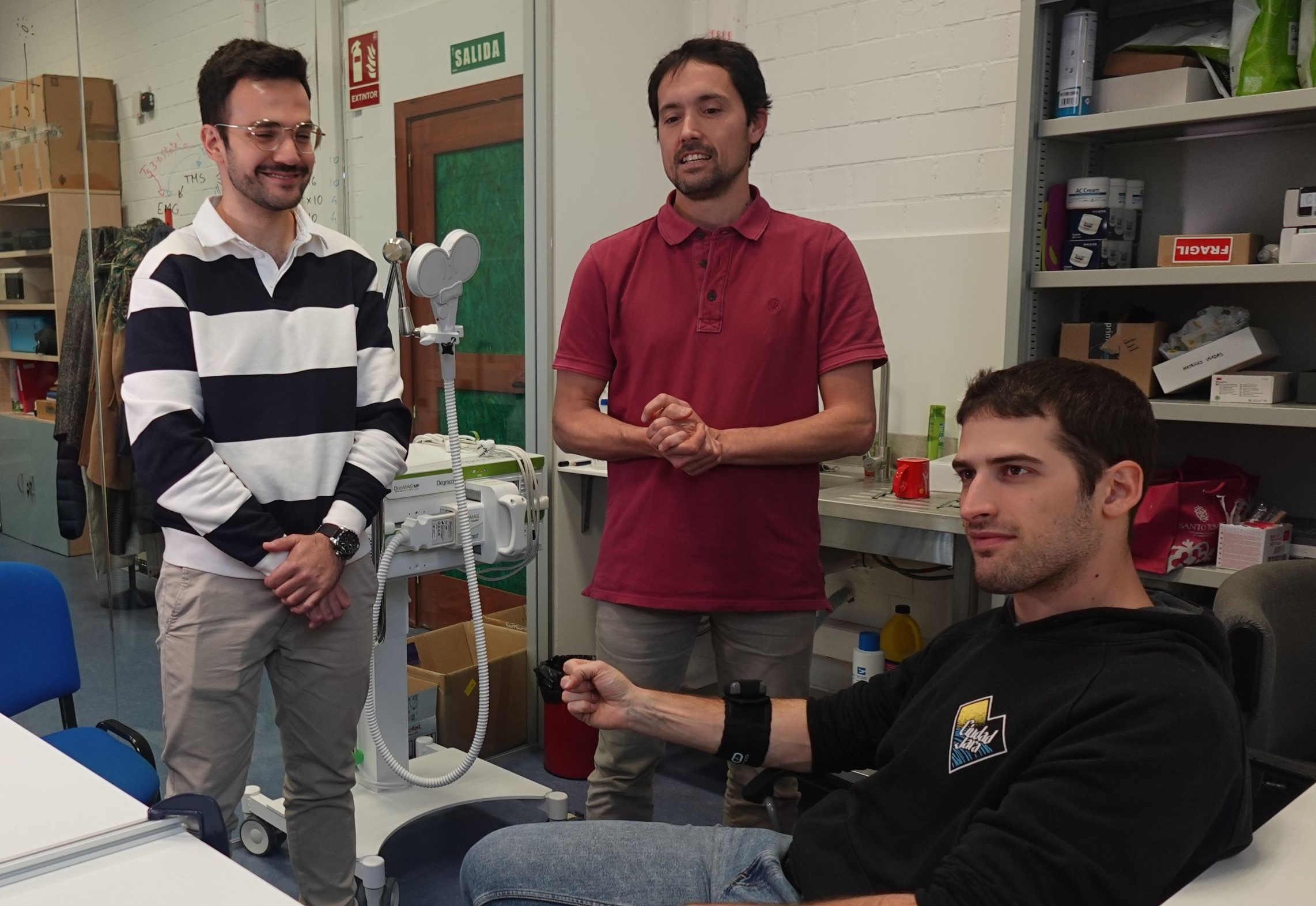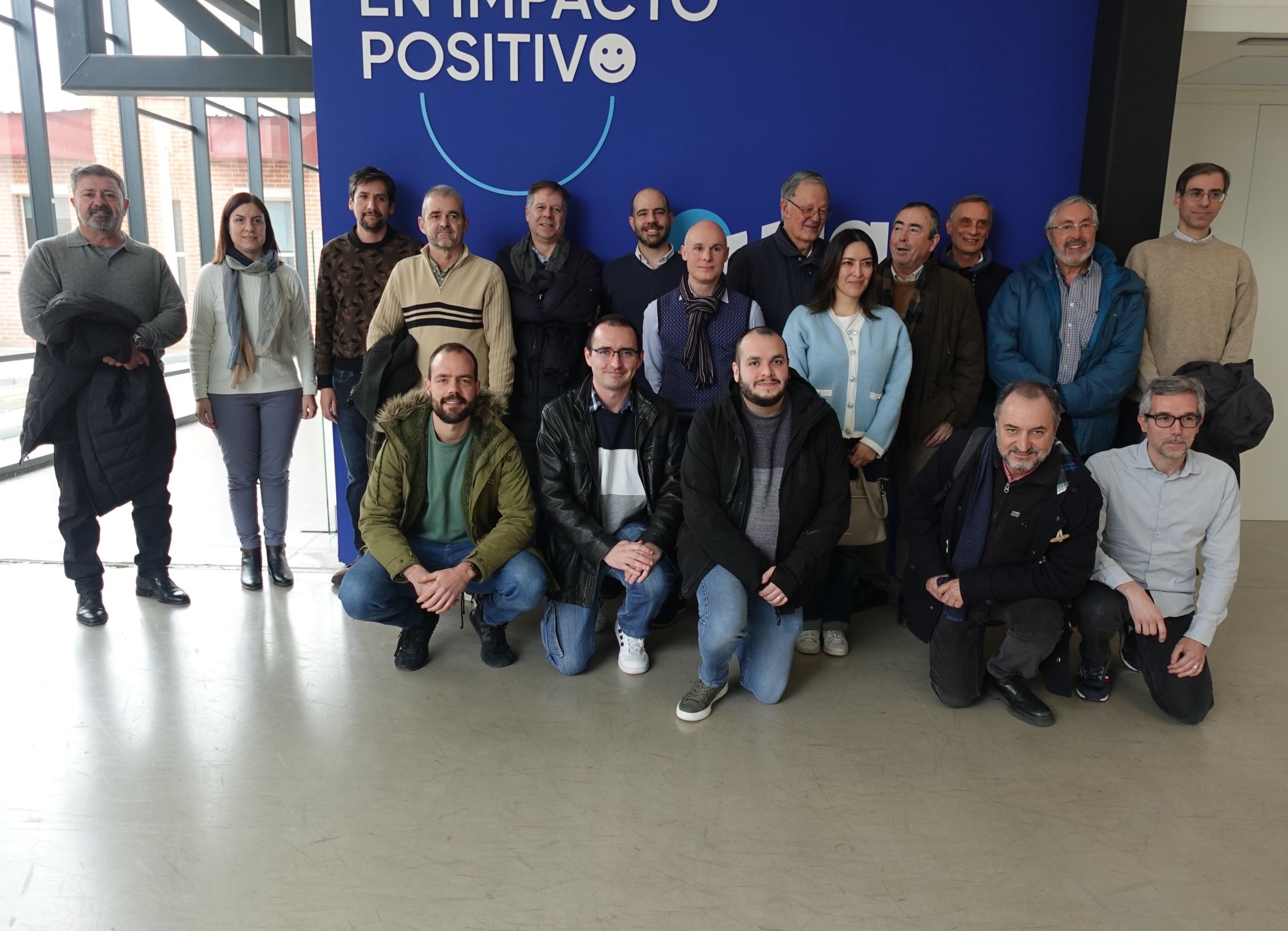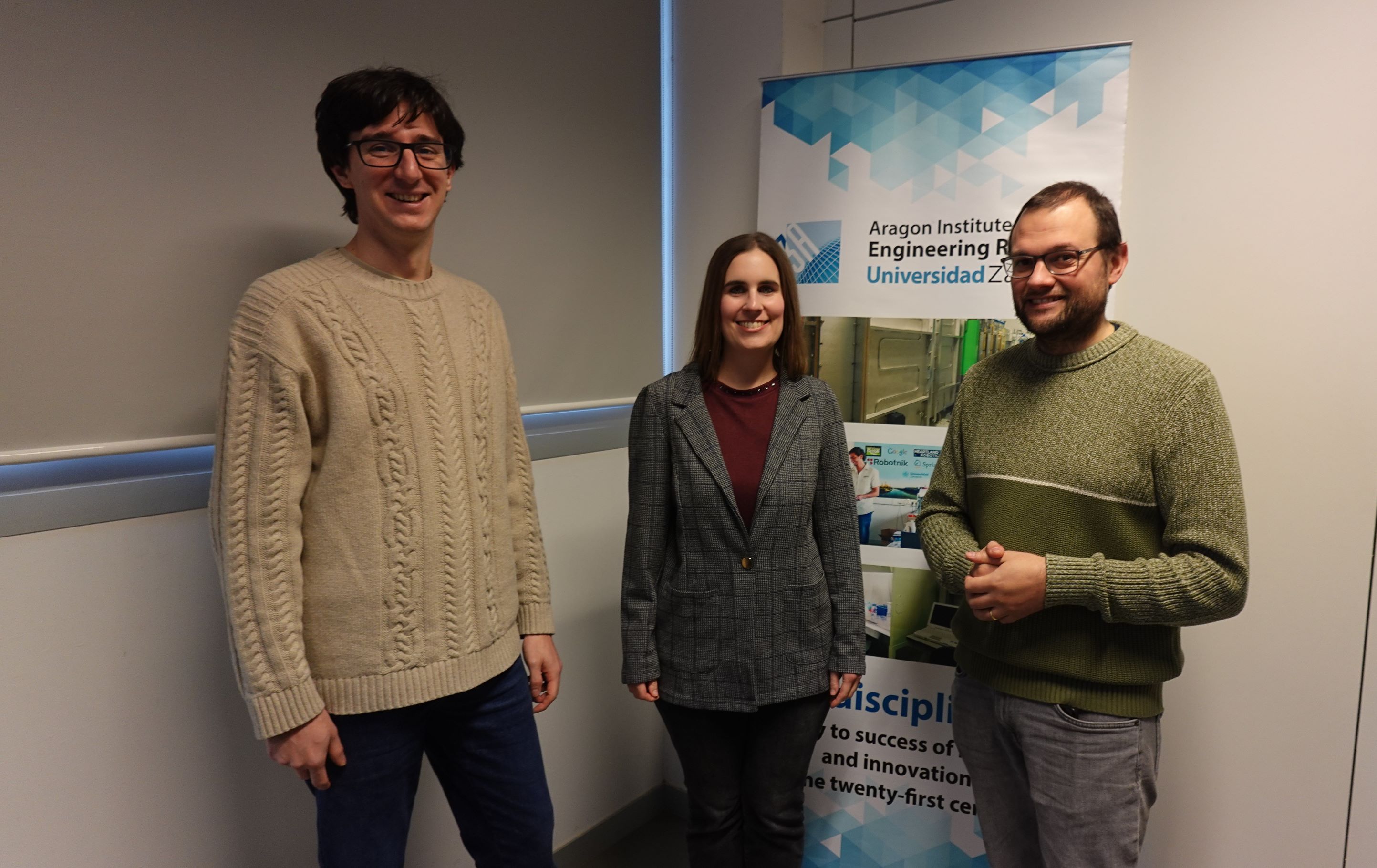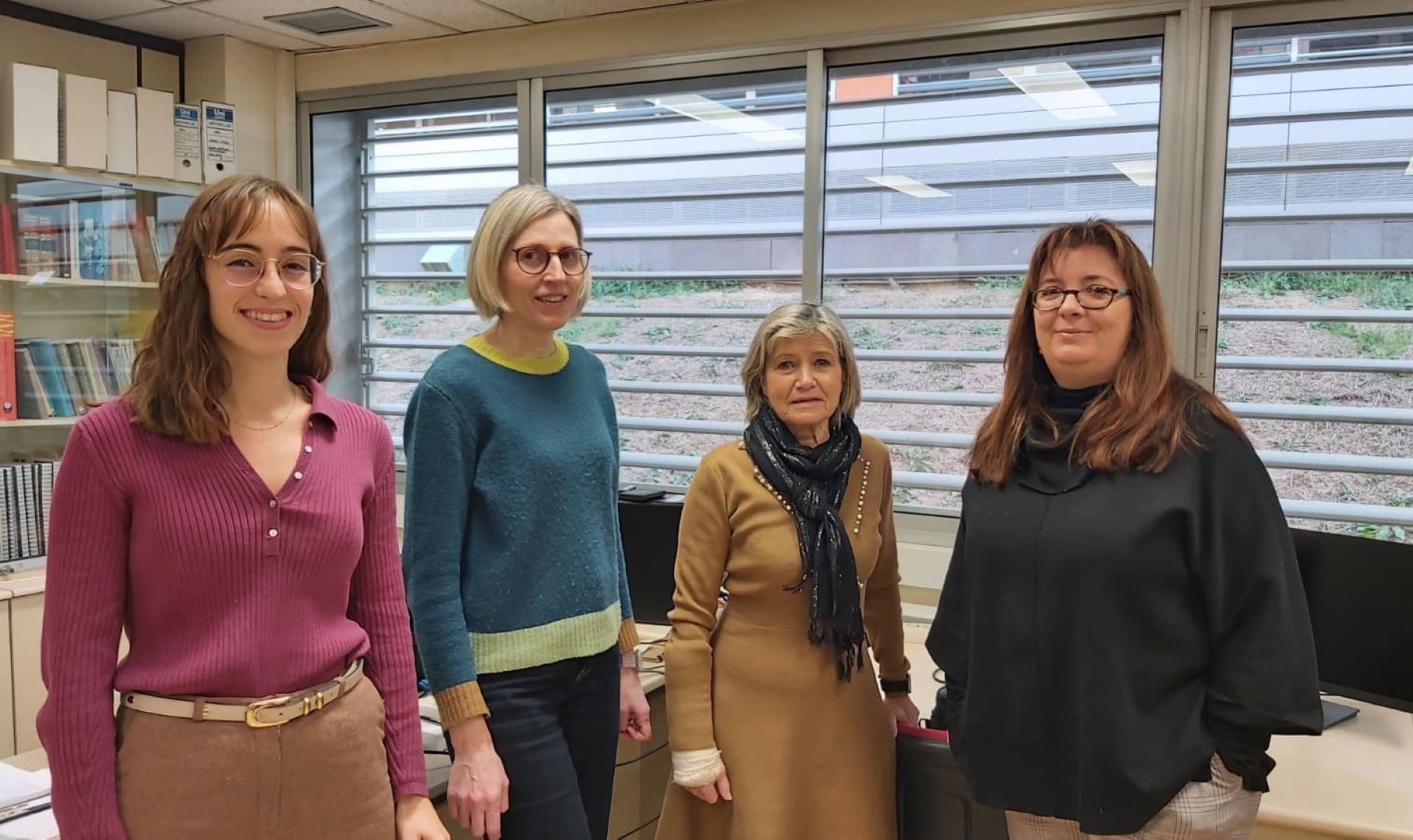
The researcher of the Aragon Institute for Engineering Research (I3A), Alejandra Consejo, has been awarded an ERC Starting Grant, the European Research Council's most prestigious grant (European Research Council, ERC), with funding of one and a half million euros. The project, VISIONSAFE, will be developed at the University of Zaragoza over the next five years. It aims to work to facilitate the early prevention of prevalent sight-threatening eye diseases such as age-related macular degeneration, glaucoma, cataracts and corneal ectasia, using efficient, cost-effective and accessible tools.
Alejandra Consejo is a physicist specialising in biomedical engineering and eye health. She is currently a lecturer at the School of Engineering and Architecture (EINA) of the University of Zaragoza and a researcher in the Optical Laser Technologies group of the I3A. She did her PhD with a Marie Curie fellowship at the Wroclaw University of Science and Technology (Wroclaw, Poland) and has been doing research on the human eye for more than 10 years.
Among the awards he has received, he has received the Multidisciplinary Innovation Award Catedra SAMCA de Desarrollo Tecnológico de Aragón, the Unita Innovation Prize, the Young Talented Researcher Award in the Third Millennium Awards, the International Young Doctoral Researchers Award granted by the Polish Academy of Sciences and the European Young Researchers' Award (EYRA) for the best doctorate/best young researcher in Europe.
The research project she leads, VISIONSAFE, as the researcher explains, is based on the fact that, in clinical ophthalmological practice, ‘health professionals capture hundreds of images of our eyes every day. These clinical images could be explored in a completely new way to facilitate the early detection of serious eye diseases that currently affect thousands of people around the world and could be preventable.
To do so, it has a team that includes the Aragonese Health Service (SALUD), in Zaragoza; the Antwerp University Hospital, in Antwerp; the Brussels University Hospital; the Ghent University Hospital, in Ghent and the West China Hospital, Sichuan University, in Chengdu, China. In addition, technical collaborators include the International Center for Translational Eye Research (ICTER) in Warsaw and the Wroclaw University of Science and Technology in Wroclaw, Poland.
What medical imaging says about eye health
VISIONSAFE aims to extract macro- and microstructural biomarkers from real clinical images depicting the retina, lens and cornea, thus facilitating early disease detection and personalised treatment.
While macrostructural (ocular shape-related) biomarkers are well established in clinical practice, microstructural (tissue-related) biomarkers remain largely unexplored. ‘The basis of our project is based on preliminary work we did that demonstrated the feasibility of deriving disease-related microstructural biomarkers from low-resolution clinical ocular images,’ says the researcher. 
VISIONSAFE combines data science, advanced image processing and rigorous experimental validation to better understand the interaction between these biomarkers in prevalent eye diseases that lead to vision loss in people.
The most innovative aspects of this project are trying to use data science for vision preservation; combining macrostructural and microstructural biomarkers from clinical images and determining whether essential information is being lost from the data that is available.
Alejandra Consejo points out that this project ‘represents an important step towards a future where eye diseases are identified and managed earlier, more efficiently, offering hope and a better quality of life to countless people’.
The presentation of VISIONSAFE took place this morning in the auditorium of the University of Zaragoza. The researcher was accompanied by Rosa Bolea, Vice-Rector for Science Policy, and Jesús Arauzo, Director of the I3A.
Precisely, with the ERC awarded to Alejandra Consejo, the University of Zaragoza has increased from 17 to 18 ERC projects, with an overall funding of 29.7M€ from the European Research Council, ‘the biggest and most decisive commitment of the European Union for research, which undoubtedly reinforces the competitiveness of our university at international level’, as highlighted by the Vice-Rector for Science Policy, Rosa Bolea at a press conference, together with the Director of I3A, Jesús Arauzo, and the young researcher who has achieved this grant of excellence. Specifically, the 18 ERC projects obtained since 2009 to date are distributed in five categories: Starting (7), Consolidator (3), Advanced (4) y Proof of Concept (3) y Synergy Grant (1). Eight of them belong to I3A researchers, as explained by the director, who emphasised that ‘We are interested in this type of calls, in research at the frontier of knowledge and, above all, we believe in young people, that they can carry out research from here’.
About the ERC Starting Grants call
The European Research Council was established by the European Union in 2007. It is Europe's leading funding organisation for cutting-edge research excellence. It funds creative researchers of any nationality and age to carry out projects in EU or associated countries. This call is suitable for talented researchers at the beginning of their research career, who have already carried out excellent supervised work, have some readiness to work independently and have the potential to become a research leader.
The Starting Grant is open to researchers of any nationality with 2 to 7 years of experience since the completion of their doctorate.
Fifty-one nationalities are represented in the applications selected in this call, in particular Germany (94 researchers), Italy (61), France (44) and Spain (36). The ERC received 3,474 proposals, of which 14.2% were selected for funding.
44% of these Starting Grants (StG) were awarded to female researchers, compared to 43% in 2023 and 39% in 2022. Starting Grants calls have attracted almost 62,000 proposals since 2007. During this time, the number of proposals submitted by women has increased from 30% to 40%.
Photographs: Communication Office of the University of Zaragoza.




